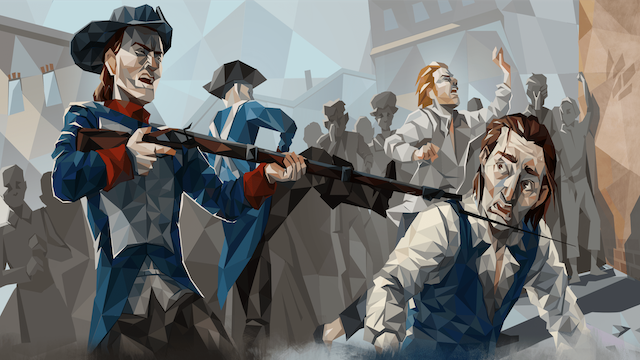
Though they received no formal training, they were not so dependent on a book knowledge of military tactics as were many of the Americans. The officers were drawn largely from the gentry and the aristocracy and obtained their commissions and promotions by purchase. The great majority became efficient soldiers as a result of sound training and ferocious discipline. Still others joined the army to escape fines or imprisonment. Others were unemployed persons from the urban slums. Many of the enlisted men were farm boys, as were most of the Americans. Since it numbered only about 42,000, heavy recruiting programs were introduced. Reasons for the difficulty in maintaining an adequate Continental force included the colonists’ traditional antipathy toward regular armies, the objections of farmers to being away from their fields, the competition of the states with the Continental Congress to keep men in the militia, and the wretched and uncertain pay in a period of inflation.īy contrast, the British army was a reliable steady force of professionals. The terms of Continental Army service were only gradually increased from one to three years, and not even bounties and the offer of land kept the army up to strength. Militias, poorly disciplined and with elected officers, were summoned for periods usually not exceeding three months.

The war was therefore one fought by small field armies. At any given time, however, the American forces seldom numbered over 20,000 in 1781 there were only about 29,000 insurgents under arms throughout the country. The total number of the former provided by quotas from the states throughout the conflict was 231,771 men, and the militias totaled 164,087. Land campaigns to 1778Įxplore highlights of the Revolutionary War, which won 13 American colonies their political independence from Great Britain © Civil War Trust ( A Britannica Publishing Partner) See all videos for this articleĪmericans fought the war on land with essentially two types of organization: the Continental (national) Army and the state militias. From the beginning, sea power was vital in determining the course of the war, lending to British strategy a flexibility that helped compensate for the comparatively small numbers of troops sent to America and ultimately enabling the French to help bring about the final British surrender at Yorktown. Meanwhile, the Netherlands, which provided both official recognition of the United States and financial support for it, was engaged in its own war against Britain. Until early in 1778 the conflict was a civil war within the British Empire, but afterward it became an international war as France (in 1778) and Spain (in 1779) joined the colonies against Britain. The war followed more than a decade of growing estrangement between the British crown and a large and influential segment of its North American colonies that was caused by British attempts to assert greater control over colonial affairs after having long adhered to a policy of salutary neglect. SpaceNext50 Britannica presents SpaceNext50, From the race to the Moon to space stewardship, we explore a wide range of subjects that feed our curiosity about space!Ĭanada: The influence of the American RevolutionRead about the fate of the loyalists after the American Revolution.Īmerican Revolution, also called United States War of Independence or American Revolutionary War, (1775–83), insurrection by which 13 of Great Britain’s North American colonies won political independence and went on to form the United States of America.

Learn about the major environmental problems facing our planet and what can be done about them!

WE. THE REVOLUTION HOW TO


 0 kommentar(er)
0 kommentar(er)
